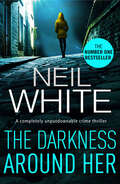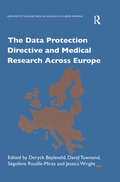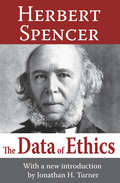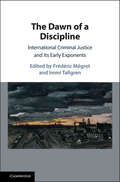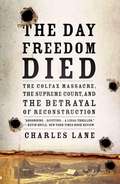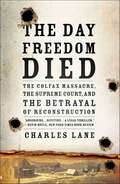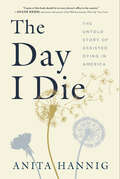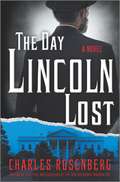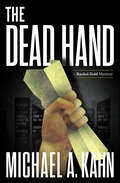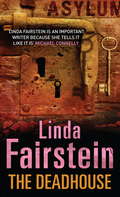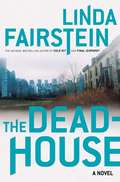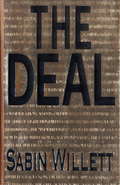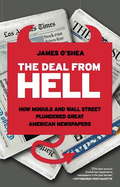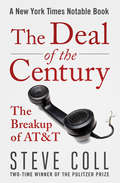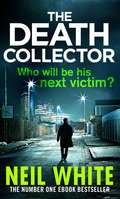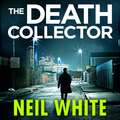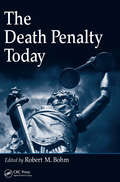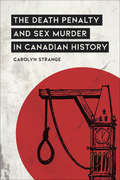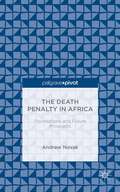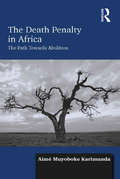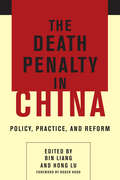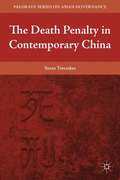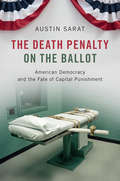- Table View
- List View
The Darkness Around Her (Dan Grant and Jayne Brett Series)
by Neil WhiteA lawyer and his investigator must discover why his client accused of a gruesome murder remains silent in this dark legal thriller. One freezing December night, the body of young, vulnerable, Lizzie Barnsley is found on the side of an isolated canal. When blood from her stiletto heel matches that on a wound on the head of Peter Box, police swiftly declare him the prime suspect in her murder. Criminal lawyer, Dan Grant, is called in to provide Peter Box&’s legal defense, along with investigator, Jayne Brett. They need answers from Box—but he&’s not talking. As they dig deeper into the case, they discover that this brutal slaying is just the latest in a series of deaths in the Northern town of Highford, starting with the murder of teenager Rosie Smith a decade ago. Blood spatter linked her stepfather, Sean Martin, to the crime—so why did Peter Box try to claim he&’d killed young Rosie? As the investigation deepens, and more murders along the towpaths come to light – murders that can&’t be linked to Peter Box—Jayne and Dan realize that they have stumbled onto a dark conspiracy in their little town. It&’s clear Peter has something to hide, but is he a killer? Grant and Brett are plunged into a race against time to uncover the truth…before a twisted psychopath claims another victim. Fans of Angela Marsons, Steve Cavanagh, and John Grisham will be hooked until the very last page.Praise for the writing Neil White&“A lively, accurate and absolutely compelling legal thriller; stand-out in both its prose and its plot. The characters are still with me, two days after finishing it. I couldn't put it down.&” —Gillian McAllister, Sunday Times-bestselling author of Everything But the Truth&“One of the best writers of legal thrillers out there.&” —David Jackson, author of Don&’t Make A Sound and A Tapping At My Door
The Data Protection Directive and Medical Research Across Europe (Data Protection and Medical Research in Europe : PRIVIREAL)
by J. Wright D. TownendThe Data Protection and Medical Research in Europe: PRIVIREAL series focuses on the 'Privacy in Research Ethics and Law' EC-funded project examining the implementation of Directive 95/46/EC on data protection in relation to medical research and the role of ethics committees in European countries. The series consists of five separate volumes following the complete development of the PRIVIREAL project. This volume relates to the first stage of the project regarding the implementation of the Data Protection Directive, in particular in the area of medical research. It contains an introduction and overview of this topic, keynote papers addressing specific questions on the subject, and a report on both the general implementation of the Directive and the implementation in relation to medical research in 26 European countries. The book will be invaluable for those people with an interest in data protection, medical research and their implications for each other. It lays open the actual situation across Europe, including both New Member States and Newly Associated Member States.
The Data of Ethics
by Herbert SpencerIn this amazingly prophetic work, done late in his career, Herbert Spencer offers an approach to ethics that anticipates developments throughout the twentieth century. He moves away from the twin evils of ethical doctrines bequeathed to us by an ancient past that are simply no longer feasible but also avoids modern standards of ethical conduct that are simply impossible to attain. "By association with rules that cannot be obeyed," Spencer writes, "rules that can be obeyed lose their authority."The volume opens with three chapters on conduct: its evolution, good and bad, and ways of judgment. This is followed by a series of chapters that examine ethics from a variety of scientific perspectives: physics, biology, psychology, and sociology. The work then moves on to specific issues of deep human concern: the relativity of pleasures and pain, egoism versus altruism in explaining actions, and trial and compromise in decision-making about ethical concerns.Spencer's work anticipates the movement toward pragmatic, naturalistic, and even positivist approaches to ethics. He emphasizes that a relativist approach while in keeping with the spirit of the industrial age, also poses a variety of problems that admit only of empirical solutions. He understands that his critical stance on absolutism should not blind researchers to the ideals assumed by the ancients that assist people in their everyday living. In short, this is a remarkable work, entirely modern, and yet containing a sharp evaluation of how ethical data serve to enhance ethical conduct.
The Dawn of a Discipline: International Criminal Justice and Its Early Exponents
by Frédéric Mégret Immi TallgrenThe history of international criminal justice is often recounted as a series of institutional innovations. But international criminal justice is also the product of intellectual developments made in its infancy. This book examines the contributions of a dozen key figures in the early phase of international criminal justice, focusing principally on the inter-war years up to Nuremberg. Where did these figures come from, what did they have in common, and what is left of their legacy? What did they leave out? How was international criminal justice framed by the concerns of their epoch and what intuitions have passed the test of time? What does it mean to reimagine international criminal justice as emanating from individual intellectual narratives? In interrogating this past in all its complexity one does not only do justice to it; one can recover a sense of the manifold trajectories that international criminal justice could have taken.
The Day Freedom Died: The Colfax Massacre, the Supreme Court, and the Betrayal of Reconstruction
by Charles Lane"Absorbing ... Riveting ... A legal thriller. "--Kevin Boyle, The New York Times Book Review. Following the Civil War, Colfax, Louisiana, was a town like many where African Americans and whites mingled uneasily. On April 13, 1873, a small army of white ex-Confederate soldiers, enraged after attempts by freedmen to assert their new rights, killed more than sixty African Americans who had occupied a courthouse. Seeking justice for the slain, one brave U. S. attorney, James Beckwith, risked his life and career to investigate and punish the perpetrators--but they all went free. What followed was a series of courtroom dramas that culminated at the Supreme Court, where the justices' verdict compromised the victories of the Civil War and left Southern blacks at the mercy of violent whites for generations. The Day Freedom Died is a riveting historical saga that captures a gallery of characters from presidents to townspeople, and re-creates the bloody days of Reconstruction, when the often brutal struggle for equality moved from the battlefield into communities across the nation.
The Day Freedom Died: The Colfax Massacre, the Supreme Court, and the Betrayal of Reconstruction
by Charles LaneThe untold story of the massacre of a Southern town’s freedmen and a white lawyer’s battle to bring the killers to justice: “Riveting.” —The New York Times Book ReviewFollowing the Civil War, Colfax, Louisiana, was a town, like many, where African Americans and whites mingled uneasily. But on April 13, 1873, a small army of white ex–Confederate soldiers, enraged after attempts by freedmen to assert their new rights, killed more than sixty African Americans who had occupied a courthouse. With skill and tenacity, the Washington Post’s Charles Lane transforms this nearly forgotten incident into a riveting historical saga.Seeking justice for the slain, one brave US attorney, James Beckwith, risked his life and career to investigate and punish the perpetrators—but they all went free. What followed was a series of courtroom dramas that culminated at the Supreme Court, where the justices’ verdict compromised the victories of the Civil War and left Southern blacks at the mercy of violent whites for generations. The Day Freedom Died is an electrifying piece of historical detective work that captures a gallery of characters from presidents to townspeople, and re-creates the bloody days of Reconstruction, when the often-brutal struggle for equality moved from the battlefield into communities across the nation.“Thoroughly readable, carefully documented.” —Publishers Weekly (starred review)“Fascinating.” —New Orleans Times-Picayune“An electrifying piece of historical reporting.” —Tucson Citizen
The Day I Die: The Untold Story of Assisted Dying in America
by Anita HannigAn intimate investigation of assisted dying in America and what it means to determine the end of our lives.In this groundbreaking book, award-winning cultural anthropologist Anita Hannig brings us into the lives of ordinary Americans who go to extraordinary lengths to set the terms of their own death. Faced with a terminal diagnosis and unbearable suffering, they decide to seek medical assistance in dying—a legal option now available to one in five Americans.Drawing on five years of research on the frontlines of assisted dying, Hannig unearths the uniquely personal narratives masked by a polarized national debate. Among them are Ken, an irreverent ninety-year-old blues musician who invites his family to his death, dons his best clothes, and goes out singing; Derianna, a retired nurse and midwife who treks through Oregon and Washington to guide dying patients across life's threshold; and Bruce, a scrappy activist with Parkinson's disease who fights to expand access to the law, not knowing he would soon, in an unexpected twist of fate, become eligible himself.Lyrical and lucid, sensitive but never sentimental, The Day I Die tackles one of the most urgent social issues of our time: how to restore dignity and meaning to the dying process in the age of high-tech medicine. Meticulously researched and compassionately rendered, the book exposes the tight legal restrictions, frustrating barriers to access, and corrosive cultural stigma that can undermine someone's quest for an assisted death—and why they persist in achieving the departure they desire.The Day I Die will transform the way we think about agency and closure in the face of death. Its colorful characters remind us what we all stand to gain when we confront the hard—and yet ultimately liberating—truth of our mortality.
The Day Lincoln Lost
by Charles RosenbergAn inventive historical thriller that reimagines the tumultuous presidential election of 1860, capturing the people desperately trying to hold the nation together—and those trying to crack it apart.Abby Kelley Foster arrived in Springfield, Illinois, with the fate of the nation on her mind. Her fame as an abolitionist speaker had spread west and she knew that her first speech in the city would make headlines. One of the residents reading those headlines would be none other than the likely next president of the United States.Abraham Lincoln, lawyer and presidential candidate, knew his chances of winning were good. All he had to do was stay above the fray of the slavery debate and appear the voice of reason until the people cast their votes. The last thing he needed was a fiery abolitionist appearing in town. When her speech sparks violence, leading to her arrest and a high-profile trial, he suspects that his political rivals have conspired against him.President James Buchanan is one such rival. As his term ends and his political power crumbles, he gathers his advisers at the White House to make one last move that might derail Lincoln’s campaign, steal the election and throw America into chaos.A fascinating historical novel and fast-paced political thriller of a nation on the cusp of civil war, The Day Lincoln Lost offers an unexpected window into one of the most consequential elections in our country’s history.
The Dead Hand: A Rachel Gold Mystery (Attorney Rachel Gold Mysteries #10)
by Michael A. KahnSt Louis lawyer Rachel Gold deals with many a family drama, mostly of the dysfunctional variety. Divorce. Paternity. And death. Occasionally, all three combine into a "dead hand" trifecta, where the deceased seeks to control the living—and especially his descendants—from beyond the grave.Rachel calls them "zombies." The legal term for such inheritance plans is "the dead hand," the English translation of the Old French term "mortmain." The term refers to the attempt by wealthy individuals to exert perpetual ownership over property (and future generations) through legal documents prepared before they die. But not even the most obsessed tycoon or his skilled attorneys can foresee every future contingency. To quote the old Yiddish maxim, "Man plans, and God laughs." And angry descendants sue.It's so true. Rachel suddenly finds herself representing two women—one a young widow, one an older divorcee—in a pair of nasty zombie cases where the outcome of each hinges upon a clause in a contested estate plan.Client Cyndi Mulligan is the trophy widow of the late Bert Mulligan, a billionaire entrepreneur whose last will and testament left his estate to Cyndi's unborn daughter. The challenge comes from Bert's angry first wife and her angrier only son. Their claim: Cyndi's daughter—born eleven months after Bert's death—cannot possibly be Bert's child.In the other case, Rachel represents Marsha Knight, the first wife of the wealthy founder of a women's lingerie manufacturer. Marsha has been sued by his young widow, who seeks to invalidate Marsha's divorce settlement and, in the process, impoverish her through invocation of the ancient and nearly inscrutable Rule Against Perpetuities.As the trial date approaches in each lawsuit, the threats to Rachel and her two clients begin to escalate. Zombies, as Rachel discovers, are hard to kill. And even worse, they can still kill—and where least expected.The Dead Hand is written with the verve, humor, and legal smarts that are trademark Michael Kahn.
The Deadhouse (Alexandra Cooper #4)
by Linda FairsteinLola Dakota had to call in the police several times to restrain her abusive husband, but he always returned, so when they got wind of his plan to hire a hitman to kill her she agrees to play her part in the sting which would see both men arrested. It proves to be a great success, but several hours later and when her husband is under lock and key, Lola is truly dead -and by someone's hand. The police team on the original sting are in disarray, so Alex Cooper and Mike Chapman are swiftly in place to take over. Looking beyond her husband into her professional life, they discover a university department riddled with jealousies, extra-marital affairs, swindled funds and the unexplained disappearance of a student known to be a drug user. The one thing which seems to link all the players with all the misdemeanours is the university's research site on an island off Manhattan where they were investigating the remains of the Victorian isolation hospitals and lunatic asylums and the morgue - the deadhouse. But why Lola's murder is connected to the place is not so easy to prove, nor the identity of her killer.
The Deadhouse: A Novel (An Alexandra Cooper Novel #4)
by Linda FairsteinAssistant D.A. Alexandra Cooper returns in this page-turning New York Times bestseller from legendary Manhattan sex-crimes prosecutor Linda Fairstein.On Roosevelt Island, a strip of land in New York City's East River, stands an abandoned 19th century smallpox asylum, "The Deadhouse," where the afflicted were shipped off to die. It's a gruesome bit of history perhaps best forgotten. But for Alexandra Cooper, it may be the key to a shocking murder that cuts deeper than the arctic cold front gripping the city. A respected university professor is dead -- strangled and dumped in an elevator shaft. And while the school does damage control for anxious parents, Cooper and her close detective friend Mike Chapman scramble for answers, fueled by the most daunting discovery: a piece of paper, found on the lifeless body of Professor Lola Dakota, that reads The Deadhouse....
The Deal
by Sabin WillettAt 7:00 am in a Boston boardroom, there's a disaster in the making. High in an office tower in the heart of the financial district, lawyers and bankers are fighting a deadline to close an $840,000,000 leveraged buyout. Under the pressure of the crowded agenda, no one notices that a zero has been dropped from the mortgage document. The papers are signed, cheers and applause roar from the boardroom--and the fuse of a time bomb is lit. When it explodes, there will be hell to pay. As the partners of Freer, Motley, the presiding law firm, will discover, they are collectively and personally liable to their client to make up the multimillion-dollar shortfall.And so begins an accelerating and dire chain of events. Freer, Motley's senior partner is found dead, and its brightest young associate is charged with murder. The firm needs a fall guy, and John Shepard, brilliant but arrogant--and recently passed over for partner--fills the role to perfection. Defending John Shepard in a Boston court is going to be a career buster. No one wants the job, and no one understands why Ed Mulcahy accepts the case, even if he is Shepard's friend--but they don't know that he's already in way too deep to walk away.On a par with Scott Turow's Presumed Innocent, The Deal is the most exciting new legal thriller from a first-time author to be published in years. Written by a young partner with one of Boston's prestigious old firms, it is an utterly authentic view of the city's judicial system, from the ex-con informants, paid for their evidence, to the district attorney who needs a conviction for the sake of his political career. It is also the compelling story of two young lawyers--a defendant and his attorney--realizing too late that they are up against an old-guard establishment more powerful than they could ever imagined.
The Deal from Hell: How Moguls and Wall Street Plundered Great American Newspapers
by James O'SheaIn 2000, after the Tribune Company acquired Times Mirror Corporation, it comprised the most powerful collection of newspapers in the world. How then did Tribune nosedive into bankruptcy and public scandal? In The Deal From Hell, veteran Tribune and Los Angeles Times editor James O'Shea takes us behind the scenes of the decisions that led to disaster in boardrooms and newsrooms from coast to coast, based on access to key players, court testimony, and sworn depositions.The Deal From Hell is a riveting narrative that chronicles how news industry executives and editors--convinced they were acting in the best interests of their publications--made a series of flawed decisions that endangered journalistic credibility and drove the newspapers, already confronting a perfect storm of political, technological, economic, and social turmoil, to the brink of extinction.
The Deal of the Century: The Breakup of AT&T
by Steve CollA New York Times–bestselling author&’s &“superbly reported&” account of the dismantling of the world&’s largest corporation (The Washington Post). Written by the two-time Pulitzer Prize–winning author of Ghost Wars and Private Empire, The Deal of the Century chronicles the decade-long war for control of AT&T. When the US Department of Justice brought an antitrust lawsuit against AT&T in 1974, the telecommunications giant held a monopoly on phone service throughout the country. Over the following decade, an army of lawyers, executives, politicians, and judges spent countless hours clashing over what amounted to the biggest corporate breakup in American history. From boardroom to courtroom, Steve Coll untangles the myriad threads of this complex and critical case and gives readers &“an excellent behind-the-scenes look&” at the human drama involved in the remaking of an entire industry (The Philadelphia Inquirer). Hailed by the New York Times Book Review as &“rich, intricate and convincing,&” The Deal of the Century is the definitive narrative of a momentous turning point in the way America does business.
The Death Collector
by Neil WhiteJoe Parker is Manchester's top criminal defence lawyer and Sam Parker - his brother - is a brilliant detective with the Greater Manchester Police force. Together they must solve a puzzling case that is chilling Manchester to the bone... The Death Collector is charming, sophisticated and intelligent, but he likes to dominate women, to make them give themselves to him completely; to surrender their dignity and their lives. He's a collector of beautiful things, so once he traps them he'll never let them go. Joe is drawn into the Death Collector's world and when the case becomes dangerous, Sam is the first person he turns to. In this gripping thriller, danger lurks for not only the Parker brothers, but also those closest to them.
The Death Collector
by Neil WhiteJoe Parker is Manchester's top criminal defence lawyer and Sam Parker - his brother - is a brilliant detective with the Greater Manchester Police force. Together they must solve a puzzling case that is chilling Manchester to the bone... The Death Collector is charming, sophisticated and intelligent, but he likes to dominate women, to make them give themselves to him completely; to surrender their dignity and their lives. He's a collector of beautiful things, so once he traps them he'll never let them go. Joe is drawn into the Death Collector's world and when the case becomes dangerous, Sam is the first person he turns to. In this gripping thriller, danger lurks for not only the Parker brothers, but also those closest to them.
The Death Collector
by Neil WhiteJoe Parker is Manchester's top criminal defence lawyer and Sam Parker - his brother is a brilliant detective with the Greater Manchester Police force. Together they must solve a puzzling case that is chilling Manchester to the bone...The Death Collector is charming, sophisticated and intelligent, but he likes to dominate women, to make them give themselves to him completely; to surrender their dignity and their lives. He's a collector of beautiful things, so once he traps them he'll never let them go.Joe is drawn into the Death Collector's world and when the case becomes dangerous, Sam is the first person he turns to. In this gripping thriller, danger lurks for not only the Parker brothers, but also those closest to them.
The Death Penalty Today
by Robert M. BohmMore than 30 years after the US Supreme Court reinstated the death penalty, it is still plagued with egregious problems. Issues of wrongful conviction, inhumane practices, and its efficacy as a deterrent are hotly debated topics. As of August 2007, two-thirds of the worlds countries have abolished the death penalty. Today, the US falls alongside I
The Death Penalty and Sex Murder in Canadian History (Osgoode Society for Canadian Legal History)
by Carolyn StrangeFrom Confederation to the partial abolition of the death penalty a century later, defendants convicted of sexually motivated killings and sexually violent homicides in Canada were more likely than any other condemned criminals to be executed for their crimes. Despite the emergence of psychiatric expertise in criminal trials, moral disgust and anger proved more potent in courtrooms, the public mind, and the hearts of the bureaucrats and politicians responsible for determining the outcome of capital cases. Wherever death has been set as the ultimate criminal penalty, the poor, minority groups, and stigmatized peoples have been more likely to be accused, convicted, and executed. Although the vast majority of convicted sex killers were white, Canada’s racist notions of "the Indian mind" meant that Indigenous defendants faced the presumption of guilt. Black defendants were also subjected to discriminatory treatment, including near lynchings. In debates about capital punishment, abolitionists expressed concern that prejudices and poverty created the prospect of wrongful convictions. Unique in the ways it reveals the emotional drivers of capital punishment in delivering inequitable outcomes, The Death Penalty and Sex Murder in Canadian History provides a thorough overview of sex murder and the death penalty in Canada. It serves as an essential history and a richly documented cautionary tale for the present.
The Death Penalty in Africa: Foundations and Future Prospects
by Andrew NovakIn recent years the death penalty has sharply declined across Africa, but this trend belies actual public opinion and the retributivist sentiments held by political elites. This study explains capital punishment in Africa in terms of culturally specific notions of life and death as well as the colonial-era imposition of criminal and penal policy.
The Death Penalty in Africa: The Path Towards Abolition
by Aimé Muyoboke KarimundaHuman development is not simply about wealth and economic well-being, it is also dependent upon shared values that cherish the sanctity of human life. Using comparative methods, archival research and quantitative findings, this book explores the historical and cultural background of the death penalty in Africa, analysing the law and practice of the death penalty under European and Asian laws in Africa before independence. Showing progressive attitudes to punishment rooted in both traditional and modern concepts of human dignity, Aimé Muyoboke Karimunda assesses the ground on which the death penalty is retained today. Providing a full and balanced appraisal of the arguments, the book presents a clear and compelling case for the total abolition of the death penalty throughout Africa. This book is essential reading for human rights lawyers, legal anthropologists, historians, political analysts and anyone else interested in promoting democracy and the protection of fundamental human rights in Africa.
The Death Penalty in China
by Hong Lu Roger Hood Bin LiangChina currently leads the world in death sentences and executions, making it a primary target for the global abolition movement. While the results have been subtle, anti-death penalty advocates are beginning to influence Chinese attitudes toward the practice, as well as law. Conducting an interdisciplinary and comparative study of China's death penalty as the country heads toward reform, this book explains what it took to advance reforms to limit death sentences and executions, while identifying the challenges that prevent more extensive progress. Featuring experts from Europe, Australia, Japan, China, and the United States, this collection follows changes in the theory and policy of China's death penalty from the Mao era (1949-1979) through the Deng era (1980-1997) up to the present day. Using empirical data, such as capital offender and offense profiles, temporal and regional variations in capital punishment, and the impact of social media on public opinion and reform, contributors relay both the particular character of China's death penalty practices and the incremental changes that indicate reform. They then compare the Chinese experience to other countries throughout Asia and the world, showing how change can be implemented even within a non-democratic and rigid political system, but also the dangers of pushing policies that society may not be ready to embrace.
The Death Penalty in China: Policy, Practice, and Reform
by Lu Liang Bin HongFeaturing experts from Europe, Australia, Japan, China, and the United States, this collection of essays follows changes in the theory and policy of China's death penalty from the Mao era (1949–1979) through the Deng era (1980–1997) up to the present day. Using empirical data, such as capital offender and offense profiles, temporal and regional variations in capital punishment, and the impact of social media on public opinion and reform, contributors relay both the character of China's death penalty practices and the incremental changes that indicate reform. They then compare the Chinese experience to other countries throughout Asia and the world, showing how change can be implemented even within a non-democratic and rigid political system, but also the dangers of promoting policies that society may not be ready to embrace.
The Death Penalty in Contemporary China
by Susan TrevaskesChina's infamous death penalty record is the product of firm Party-state control and policy-setting. Though during the 1980s and 1990s, the Party's emphasis was on "kill many," in the 2000s the direction of policy began to move toward "kill fewer. " This book details the policies, institutions, and story behind the reform of the death penalty.
The Death Penalty on the Ballot: American Democracy and the Fate of Capital Punishment
by Austin SaratInvestigating the attitudes about capital punishment in contemporary America, this book poses the question: can ending the death penalty be done democratically? How is it that a liberal democracy like the United States shares the distinction of being a leading proponent of the death penalty with some of the world's most repressive regimes? Reporting on the first study of initiative and referendum processes used to decide the fate of the death penalty in the United States, this book explains how these processes have played an important, but generally neglected, role in the recent history of America's death penalty. While numerous scholars have argued that the death penalty is incompatible with democracy and that it cannot be reconciled with democracy's underlying commitment to respect the equal dignity of all, Professor Austin Sarat offers the first study of what happens when the public gets to decide on the fate of capital punishment.
